In 1988, the global community set out to eradicate polio from our planet. Nigeria is now one of the last-remaining high-risk countries. WHO and UNICEF are currently running a campaign in the country with the aim of providing polio vaccinations to all children under the age of five. However, the terrorist group Boko Haram is currently posing a threat to doctors and vaccination assistants in the northern region.
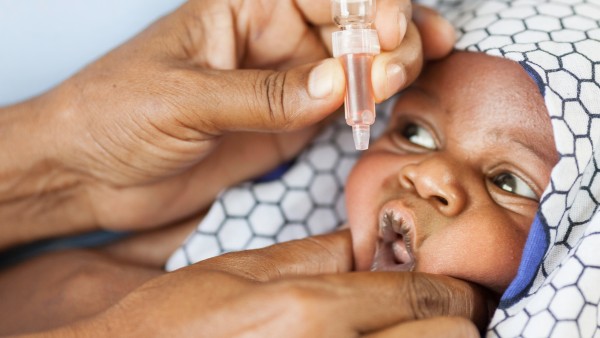
A small gulp with a big impact
If at least 95 per cent of children under five can receive two polio vaccinations, the virus can be eradicated from Nigeria.
Accompanied by a team of soldiers, doctors and vaccination assistants move from village to village and hut to hut. Their aim is to vaccinate millions of children in north-eastern Nigeria against polio. Satellites are used to locate groups of people in undeveloped areas. As soon as the time appears right, work begins, but it has to be quick. The groups make their way to the villages, collect all children under the age of five and administer the oral polio vaccine. After about two hours, the team is ready to leave the dangerous area again. The programme applies a strategy nicknamed "hit and run", which means acting as quickly and effectively as possible without becoming victims of the terrorists' violence themselves.
Along with Afghanistan and Pakistan, Nigeria is one of the three remaining countries in the world where polio has yet to be eradicated. The last cases in Europe were identified in the 1990s. Every child in every corner of the globe – just as in Germany – must continue to be routinely immunised against polio as the virus is still at risk of spreading.
The viral disease poliomyelitis, or polio for short, affects children under the age of five. Most cases of the infection are asymptomatic. However, in one in six cases, the infection attacks the nerves in the patient's spinal cord, leading to permanent paralysis. Should the infection reach the respiratory system, the disease can be fatal. To protect them against this illness, children under the age of five must be administered two oral vaccinations. To stop the virus altogether, at least 95 per cent of the population must be vaccinated against it, even in the remote corners of Nigeria.
In many parts of the country, local health agencies are responsible for vaccinations. However, safety and security issues make this approach impossible in the north-east of the country as regions like Borno are currently occupied by Boko Haram. The terrorist group rejects Western values, including health care. "In the past, attacks were aimed specifically at schools and hospitals," says KfW Project Manager Julien Morel. He explains that the area has lacked any regular facilities for a number of years. For this reason, WHO and UNICEF vaccination teams administering inoculation in these regions are accompanied by armed security forces. The danger zones cover around 25 per cent of the country and affect almost 20 million people including around two million children. "We don't know exactly how many people are living where," says Julien Morel. No statistics or even vaccination records are available.
The vaccination teams are working under the Global Polio Eradication Initiative (GPEI) and the Nigeria Polio Eradication Emergency Plan. The aim of the campaign is to halt new outbreaks of polio and eradicate the disease on a global scale. The local project partner is the Nigerian Ministry of Health, represented by the National Primary Health Care Development Agency (NPHCDA). The vaccination teams are set up by WHO, UNICEF and NPHCDA and receive substantial financial support from KfW. KfW has promoted the vaccination programme with EUR 106 million since 2005, with a further EUR 20 million in support planned for 2018. The Japanese JICA also supports the programme.
Around 370,000 local vaccination assistants have been deployed for this dangerous mission to date. Thirteen staff were killed by Boko Haram in 2013. In addition to terrorist attacks, the vaccination teams have to deal with other difficult conditions. "The infrastructure is very poor; hardly any of the roads are paved. During the rainy season, many of the regions are only accessible by boat," explains Julien Morel, describing access to the remote areas. "The teams often have to cover long distances on foot, carrying their heavy medical equipment with them as travelling by car would attract too much attention."
Source
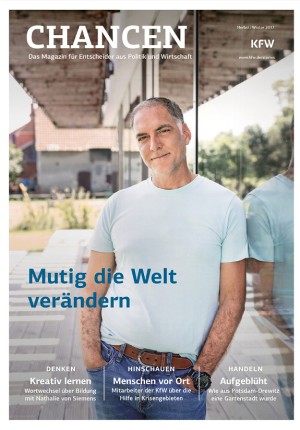
This article is a supplement to the development cooperation photo series that appeared in the autumn/winter 2017 issue of CHANCEN magazine focusing on "Courage".
To German editionThe number of Nigerian children infected with polio has declined sharply over the past decade. Spread of the virus was halted completely between July 2014 and July 2016. Although four new cases were discovered in August 2016, there have been no new wild polio infections on the entire African continent since then. This three-year interruption represents an important milestone: Nigeria could soon be officially certified polio-free, and with it the entire African continent.
The described project contributes to the following United Nationsʼ Sustainable Development Goals
Goal 3: Ensure healthy lives and promote well-being for all at all ages
Health is the goal, prerequisite and result of sustainable development. Supporting health is a humanitarian requirement – both in developed and developing countries. Around 39 per cent of the worldʼs population lives without health insurance. In poor countries, this amount even exceeds 90 per cent. Many people still die from diseases that are not necessarily fatal with the right treatment, or that could easily be prevented with vaccinations. Strengthening health systems, particularly by making vaccines widely available, can make it possible for us to drive these diseases back and even eradicate them by 2030.

All United Nations member states adopted the 2030 Agenda in 2015. At its heart is a list of 17 goals for sustainable development, known as the Sustainable Development Goals (SDGs). Our world should become a place where people are able to live in peace with each other in ways that are ecologically compatible, socially just, and economically effective.
Published on KfW Stories: 28 September 2017, last updated 13. November 2019.

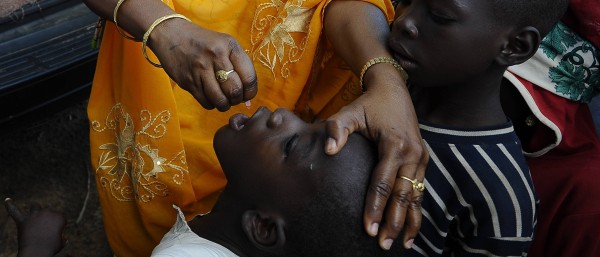
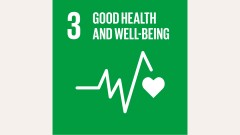

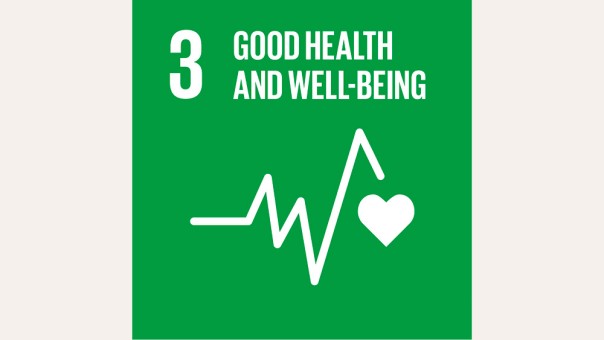

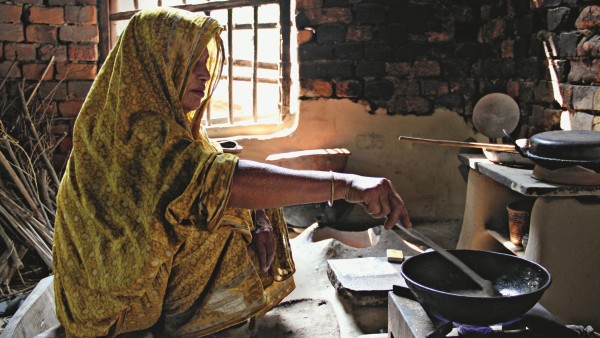
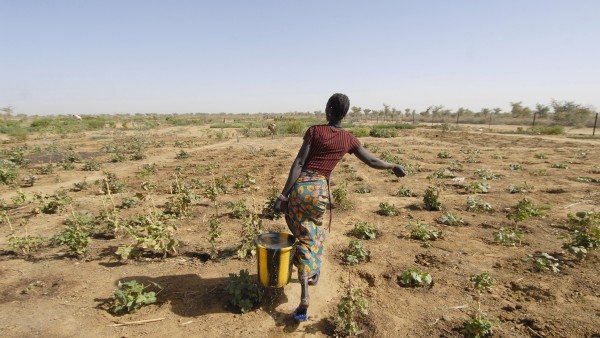
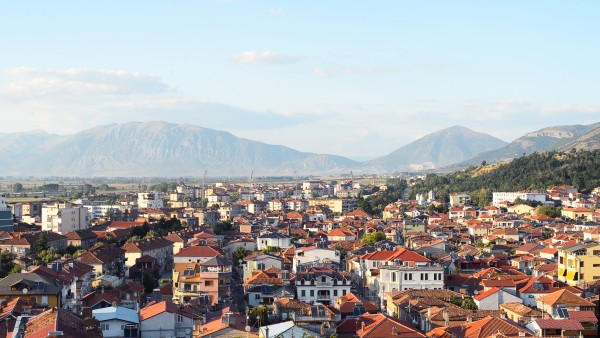
Data protection principles
If you click on one of the following icons, your data will be sent to the corresponding social network.
Privacy information